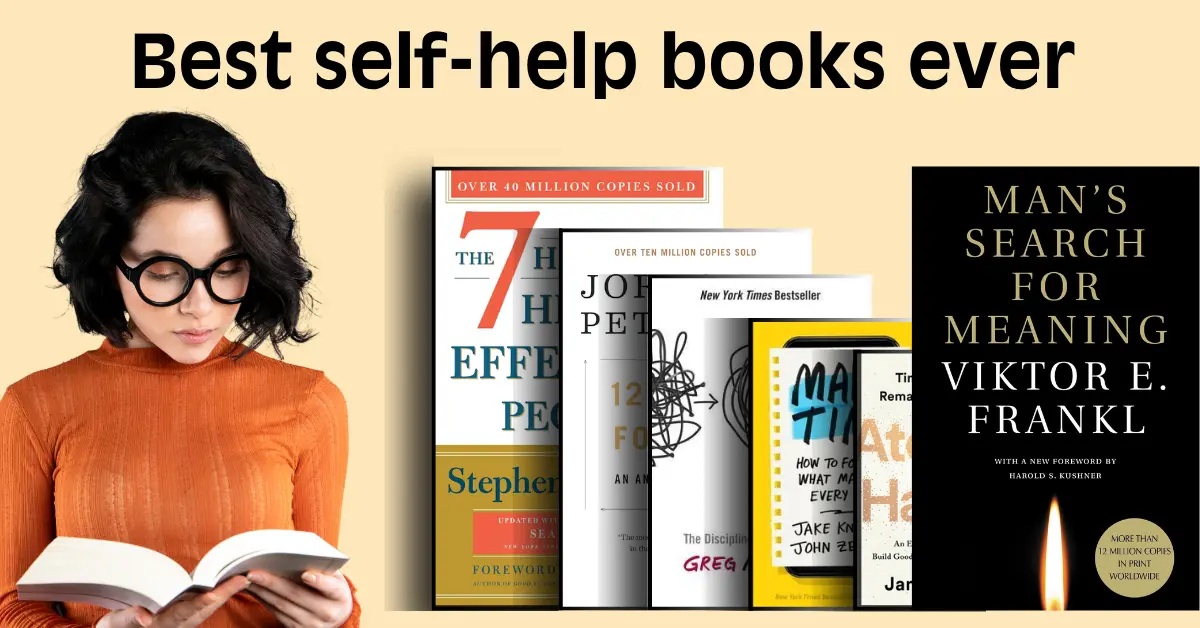Last updated on August 25th, 2025 at 11:34 am
If you’re hunting for the best self-help book to read next, this countdown gives you 20 proven picks—plus quick ways to test each idea in real life. Every mini-review is practical, skimmable, and geared toward busy readers.
Expect short descriptions, clear takeaways, and mini “review angles” so you can trial the core method in under a week. Consider this your shortcut through the noise of high rated self- help books.
Background
Self-help books have always been more than just motivational reads—they’re practical playbooks that shape habits, careers, and mindsets. The titles in this countdown were selected not only for popularity but also for lasting cultural influence, clarity of message, and day-one usability.
Many rank among the most high rated self-help books because they combine timeless wisdom with strategies you can test right away. From classics like How to Win Friends & Influence People to modern hits like Atomic Habits, each book in this list shows how structured ideas can create real, measurable change in daily life.
I ranked these titles for lasting impact, clarity, and day-one utility. For each, you’ll see: (1) the problem it solves, (2) one method to try today, (3) evidence & limits, (4) who it’s for/not for. That structure makes each pick stand out among top self help book contenders and helps you build a habit of testing, not just reading.
Best Self-help books
20. Make Time by Jake Knapp & John Zeratsky
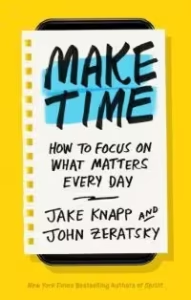
A playbook for reclaiming hours from the default of distraction. Knapp and Zeratsky propose a daily “Highlight” (one thing that matters), a “Laser” strategy to focus, “Energize” tactics for body and mind, and “Reflect” to iterate.
The tone is friendly and modular, ideal if you want a top self help book that works even when life is chaotic. It champions small, sustainable experiments instead of rigid routines.
Review angle. Run the system for 7 days; log energy/mood and Highlight completion.
Quick lens
- Problem it solves: Scattered days, zero progress on what matters.
- Method that matters: Pick one Highlight before noon; time-box it.
- Evidence & limits: Behavior design basics; not a clinical study.
- Who it’s for / not for: Great for busy pros; less for those seeking deep philosophy.
Reception. Widely praised for approachable, experiment-friendly tactics and a humane tone. Some readers find it lighter on deep systems design and long-term measurement than productivity purists prefer.
19. The War of Art by Steven Pressfield
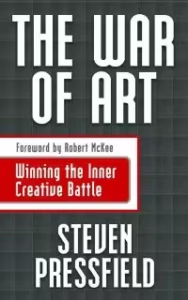
Pressfield names the inner enemy of creative work: Resistance. Through punchy, military-flavored mini-essays, he reframes shipping your work as a daily battle. If “I’ll start tomorrow” is your refrain, this best self-help book for creators will feel like a friendly shove to show up, finish, and publish.
Review angle. Do a 5-day “show-up” streak; track timestamps/word counts.
Quick lens
- Problem: Chronic procrastination on creative goals.
- Method: “Turn pro”—sit down at a fixed time daily.
- Evidence & limits: Motivational, anecdotal; thin on data.
- For / not for: Artists, makers; not for those wanting step-by-step craft.
Reception. A cult favorite among creators for its punchy, motivational call to “turn pro.” Critics note the war metaphor and lack of concrete craft guidance can feel abstract for beginners.
18. Essentialism by Greg McKeown
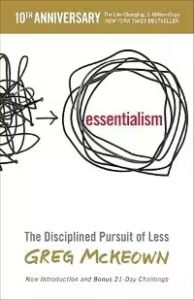
“Do less, better.” McKeown shows how saying “no” to good options unlocks focus for the great ones. Expect scripts for pushing back, pruning commitments, and designing effortless systems. Among high rated self- help books on focus, this one’s a clean, minimalist manifesto.
Review angle. Kill one “good” commitment; invest that time in one “great” task; compare output.
Quick lens
- Problem: Overcommitment and diluted results.
- Method: Identify the “vital few”; eliminate the “trivial many.”
- Evidence & limits: Supported by strategy cases; limited experimental data.
- For / not for: Leaders, students; not for burst-mode generalists needing breadth.
Reception. Celebrated for crisp clarity and practical “say no” scripts; a boardroom staple. Detractors argue it can underplay structural constraints and the privilege required to decline commitments.
17. Drive by Daniel H. Pink
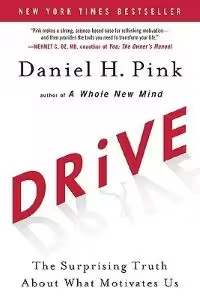
Pink argues people thrive on autonomy, mastery, and purpose. He critiques carrot-and-stick rewards for complex tasks and offers ways to redesign work and study for intrinsic motivation. It’s a top self help book for managers, teachers, and self-driven learners.
Review angle. Rewrite one task using autonomy (choice), mastery (challenge), purpose (why); log motivation.
Quick lens
- Problem: Low motivation on meaningful tasks.
- Method: AMP—Autonomy, Mastery, Purpose.
- Evidence & limits: Draws on motivation research; nuance needed in high-stakes jobs.
- For / not for: Knowledge workers; less for simple, mechanical tasks.
Reception. Popular in leadership and education circles for the Autonomy–Mastery–Purpose framework. Skeptics say it sometimes overgeneralizes research and downplays contexts where incentives still work.
16. Quiet by Susan Cain
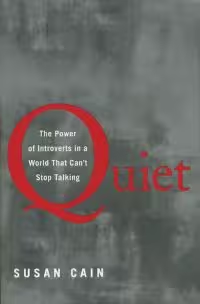
Cain champions introverts in a world built for extroversion. You’ll see how quiet strengths—deep focus, careful thinking, listening—drive outsized results. A best self-help book for students and professionals who feel drained by constant chatter but powerful in solitude.
Review angle. Redesign a study/work block for quiet deep focus; track productivity and stress.
Quick lens
- Problem: Misfit between temperament and environment.
- Method: Arrange “restorative niches” and deep-work windows.
- Evidence & limits: Strong synthesis; not a how-to for social anxiety.
- For / not for: Introverts/ambiverts; less for high-stimulus sales roles.
Reception. Embraced by introverts and managers alike for reframing strengths in quiet work. Some psychologists caution against stereotyping temperaments or oversimplifying complex social dynamics.
15. Daring Greatly by Brené Brown
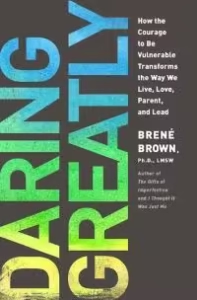
Vulnerability isn’t weakness—it’s courage. Brown blends research with stories to show how openness fuels connection, creativity, and leadership. If you want a high rated self- help books pick for braver communication, start here.
Review angle. Publish one (safe) vulnerable paragraph; compare engagement with your usual posts.
Quick lens
- Problem: Shame and armor blocking connection.
- Method: Name emotions; practice grounded confidence.
- Evidence & limits: Qualitative research; not a clinical protocol.
- For / not for: Leaders, creators; less for those seeking rigid scripts.
Reception. Lauded for empathetic storytelling and normalizing vulnerability in leadership. Critics find the language occasionally buzzword-heavy and would like more step-by-step protocols.
14. Crucial Conversations by Patterson, Grenny, et al.
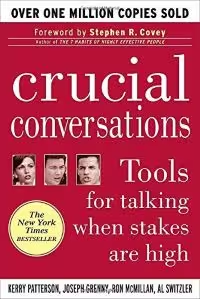
A toolkit for high-stakes dialogue when opinions differ and emotions run hot. You’ll learn to make it safe, master your stories, and speak persuasively without aggression. Among top self help book picks on conflict, it’s incredibly practical.
Review angle. Script one tough talk using “STATE” (Share facts, Tell story, Ask, Talk tentatively, Encourage testing).
Quick lens
- Problem: Conversations that go silent or explode.
- Method: Safety first; STATE your path.
- Evidence & limits: Field-tested corporate playbook.
- For / not for: Teams, partners; less for acute trauma contexts.
Reception. A corporate training staple valued for clear frameworks and memorable acronyms. Some readers see it as formulaic and note that high-conflict or trauma contexts may need deeper tools.
13. How to Win Friends & Influence People by Dale Carnegie
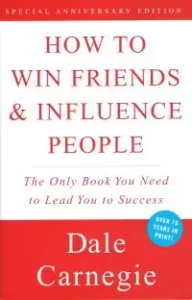
Timeless social skills: sincere interest, remembering names, giving honest appreciation, and listening more than you speak. This classic remains a best self-help book for modern networking and reputation.
Review angle. 5-day “Carnegie challenge”: remember names, offer sincere praise, ask curious questions, listen fully, follow up.
Quick lens
- Problem: Awkward networking and thin relationships.
- Method: Warm attention + genuine curiosity.
- Evidence & limits: Anecdotal but enduring.
- For / not for: Customer-facing roles; less for advanced negotiation tactics.
Reception. Enduring classic praised for timeless interpersonal basics and kindness-forward tactics. Critics argue tips can feel manipulative if intent isn’t genuinely other-focused.
12. Emotional Intelligence by Daniel Goleman
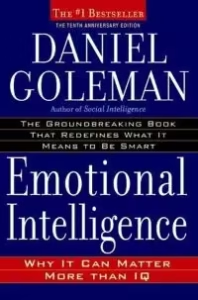
EQ predicts outcomes that IQ misses—self-awareness, self-management, empathy, and social skill. Goleman’s synthesis became a workplace standard and remains a high rated self- help books staple for communication and leadership.
Review angle. Practice one EQ skill per day (label emotion, perspective-take, de-escalate) and rate results.
Quick lens
- Problem: Smart people derailed by poor emotion skills.
- Method: Name → tame; empathy in action.
- Evidence & limits: Popular synthesis; mixed research replication.
- For / not for: Teams, managers; less for clinical therapy needs.
11. The Four Agreements by Don Miguel Ruiz
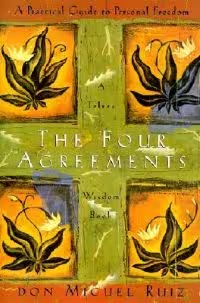
A concise code to reduce needless suffering: be impeccable with your word, don’t take things personally, don’t make assumptions, always do your best. Simple to read, hard to live—yet transformative. A top self help book for everyday clarity.
Review angle. Track slips on “impeccable word,” note repairs and outcomes.
Quick lens
- Problem: Friction from careless speech and stories.
- Method: Four daily commitments.
- Evidence & limits: Philosophical, not scientific.
- For / not for: Reflection-oriented readers; less for data purists.
Reception. Beloved for its simplicity and immediate applicability to daily friction. Skeptics label it “new-age” and note the lack of empirical backing behind the maxims.
10. 12 Rules for Life by Jordan B. Peterson
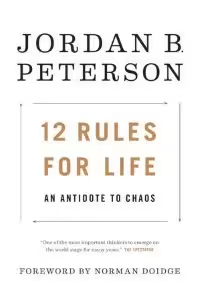
Peterson blends psychology, myth, and personal responsibility into 12 memorable rules. You’ll find practical counsel (stand up straight) and deeper reflections (pursue meaning). Polarizing, yes, but widely read as a best self-help book on order and responsibility.
Review angle. Pick two rules; apply for 5 days; write micro-case studies.
Quick lens
- Problem: Drift, chaos, and lack of structure.
- Method: Concrete rules + narrative meaning.
- Evidence & limits: Opinion-driven synthesis.
- For / not for: Those craving structure; less for readers averse to the author’s style.
Reception. Hugely influential; put EQ on the map for hiring and leadership development. Academics point to measurement debates and concept sprawl across subsequent EQ models.
9. Think Again by Adam Grant
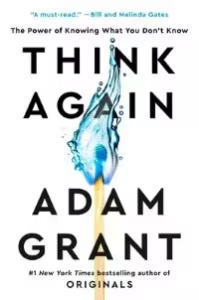
A manual for confident humility—updating beliefs as new evidence emerges. Grant shows how to unlearn, argue like a scientist, and build cultures that reward re-thinking. It’s a high rated self- help books option for better decisions.
Review angle. Log three re-thinks you made and what changed.
Quick lens
- Problem: Overconfidence and stale mental models.
- Method: Ask, test, revise—like a scientist.
- Evidence & limits: Strong organizational research; less on personal trauma choices.
- For / not for: Leaders, analysts; less for those seeking motivational hype.
Reception. Praised for making intellectual humility actionable and for lively case studies. Critics say it leans on organizational anecdotes and can feel executive-centric at times.
8. The Subtle Art of Not Giving a F*ck by Mark Manson
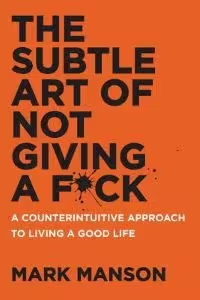
Choose your problems wisely. Manson argues values and honest boundaries beat blind positivity. The humor is sharp; the advice is grounded. A top self help book for cutting through noise and committing to what matters.
Review angle. List 3 values, 3 “no’s,” and 1 boundary you’ll enforce this week.
Quick lens
- Problem: People-pleasing and vague goals.
- Method: Clarify values; accept discomfort.
- Evidence & limits: Pragmatic philosophy; minimal formal studies.
- For / not for: Over-obligated readers; less for those wanting gentle prose only.
Reception. A breakout hit with readers who want blunt, values-first advice. Others are turned off by the abrasive style and argue the ideas boil down to familiar stoicism.
7. Man’s Search for Meaning by Viktor E. Frankl
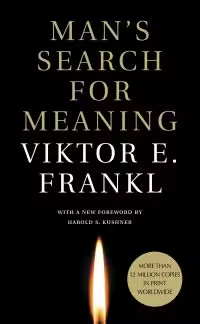
Frankl’s memoir of surviving the camps and his logotherapy insight: humans endure by finding meaning in suffering, love, and work. A humbling best self-help book that reframes “happiness” as a by-product of purpose.
Review angle. Track “meaning moments” vs “happiness moments” for a week; reflect on well-being.
Quick lens
- Problem: Emptiness and nihilism.
- Method: Meaning through responsibility and attitude.
- Evidence & limits: Philosophical/clinical; not a quick-fix.
- For / not for: Readers seeking depth; less for purely tactical tips.
Reception. Revered as profound and life-reorienting; often cited as a must-read. Some scholars note limits in generalizing logotherapy from extreme contexts to everyday life.
6. Grit by Angela Duckworth
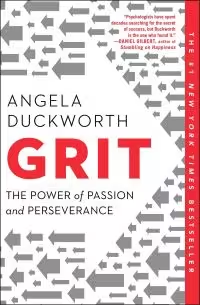
Success = passion + perseverance over time. Duckworth shares research and stories showing how sustained effort compounds. It’s a high rated self- help books favorite—useful, with caveats.
Review angle. Does grit predict your outcomes when resources are uneven? Track one challenge honestly.
Quick lens
- Problem: Quitting too soon.
- Method: Deliberate practice, long horizon.
- Evidence & limits: Predictive in some contexts; equity caveats matter.
- For / not for: Students, athletes; less for those in acute burnout.
Reception. Celebrated for spotlighting perseverance and deliberate practice; widely assigned in schools. Critics highlight socioeconomic confounds and caution against “grit” as a cure-all.
5. The Power of Habit by Charles Duhigg
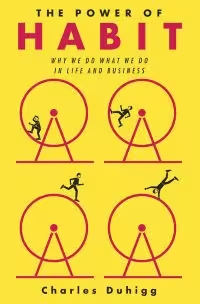
Habits run on cue → routine → reward. Duhigg shows how to diagnose loops and swap routines while keeping cues/rewards. A practical top self help book for redesigning daily behavior.
Review angle. Run an “if-then” cue swap on a snack/scroll habit; chart success rate.
Quick lens
- Problem: Sticky, unhelpful routines.
- Method: Habit loop + keystone habits.
- Evidence & limits: Case-heavy; some science simplified.
- For / not for: Behavior tweakers; less for those seeking hard neuroscience.
Reception. Loved for vivid stories and a catchy cue-routine-reward model; boosted habit discourse. Scientists sometimes fault the pop-sci simplifications and selective case emphasis.
4. Deep Work by Cal Newport
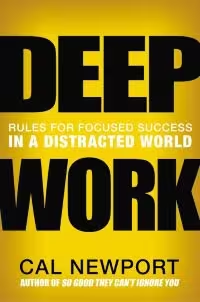
In a distracted world, focus is a superpower. Newport shows how to design rituals, quit shallow work, and produce meaningful output. A perennial best self-help book for students and makers.
Review angle. Do a 5-day deep-work sprint; compare throughput to your scrolling baseline.
Quick lens
- Problem: Constant distraction, low throughput.
- Method: Time-blocked deep work; quit social noise.
- Evidence & limits: Strong logic; mostly principles, not lab studies.
- For / not for: Knowledge creators; less for reactive support roles.
Reception. A favorite among knowledge workers for legitimizing focus and time-blocking. Some push back that the prescriptions can feel rigid or unrealistic in reactive roles.
3. Mindset by Carol S. Dweck
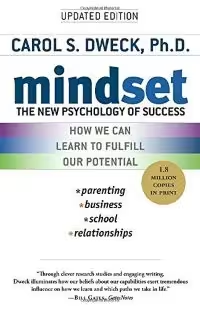
Growth mindset (abilities can develop) beats fixed mindset for learning and resilience. Dweck’s framing reshaped education and coaching. A high rated self- help books classic—powerful when applied precisely.
Review angle. Analyze one “failure → learning” moment; change your self-talk and behavior on the next attempt.
Quick lens
- Problem: Fear of failure; avoidance.
- Method: “Not yet” language; process praise.
- Evidence & limits: Replication debates; still useful as a lens.
- For / not for: Students, teams; less for those seeking step-by-step tactics.
Reception. Highly influential across education and coaching; “growth mindset” entered the mainstream. Replication debates and misapplication (e.g., empty praise) draw periodic criticism.
2. The 7 Habits of Highly Effective People by Stephen R. Covey
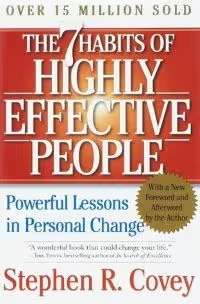
Values → principles → actions. Covey’s habits (be proactive, begin with the end in mind, etc.) remain a comprehensive operating system. If you want a top self help book that integrates personal and professional growth, this is it.
Review angle. Test the “big rocks” time method for a week; compare calendars before/after.
Quick lens
- Problem: Reactivity and misaligned priorities.
- Method: Circle of influence; big rocks; win-win.
- Evidence & limits: Principle-driven, not experimental.
- For / not for: Managers, students; less for those wanting quick hacks.
Reception. Treasured for principle-driven clarity and longevity; a cross-generational classic. Detractors find examples dated and prefer more data-driven, modern casework.
1. Atomic Habits by James Clear
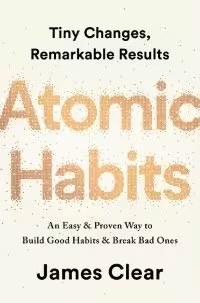
Tiny changes compound. Clear offers a crisp system: make it obvious, attractive, easy, and satisfying—plus identity-based habits that stick. As a best self-help book for behavior change, it’s unmatched in clarity and immediacy.
Review angle. Run one tiny habit for 7 days; measure a simple metric (e.g., pages read, steps).
Quick lens
- Problem: Starting and sticking with new behaviors.
- Method: 4 Laws of Behavior Change; identity shift.
- Evidence & limits: Behavior science-aligned; anecdotes for breadth.
- For / not for: Anyone wanting small wins; less for deep therapy needs.
Reception. Universally praised for usability, tight writing, and identity-based habits; a mega-bestseller. Some readers say it skims neuroscience and that success stories can feel anecdotal.
Conclusion
Choosing the right self-help book isn’t about following hype—it’s about matching the right framework to your current challenge.
The 20 books in this countdown cover focus, motivation, resilience, communication, and meaning. Each offers not just inspiration but a concrete experiment you can try in under a week. Think of them as tools for building your personal operating system.
Whether you’re looking for top self help books to sharpen habits, reframe setbacks, or strengthen relationships, this curated list gives you a practical roadmap. Start with one small test, keep what works, and you’ll steadily build a library of methods tailored to your own growth.
